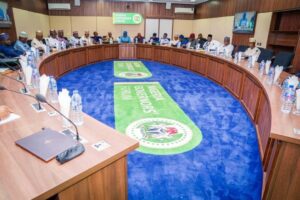
50% of imported pharmaceuticals are counterfeits – NAFDAC DG
By Matthew Denis, Abuja
The National Agency for Food and Drug Administration and Control (NAFDAC) has revealed that a staggering 50% of pharmaceutical products imported into Nigeria are counterfeit.
The Director General of NAFDAC, Prof. Mojisola Adeyeye disclosed this alarming statistic during a recent stakeholders’ engagement held in Abuja.
Adeyeye emphasized that the Certificate of Pharmaceutical Product (CPP) should adhere to the guidelines set by the World Health Organization (WHO), certifying the status of the product and the applicant in the exporting country. Despite efforts to ensure product quality, she expressed deep concern over the prevalence of fake CPPs entering Nigeria.
The Director General pointed out that substandard and falsified pharmaceuticals pose a serious threat to the availability of safe, effective, and affordable medicines, undermining the goal of achieving universal health coverage in Nigeria and across Africa. Adeyeye highlighted the WHO’s Certificate of Pharmaceutical Product (CPP) scheme, designed to assure receiving countries of the quality of exported medicines.
Adeyeye revealed that a significant portion of medicines imported into Nigeria originates from South East Asia. She outlined the agency’s pre-shipment testing scheme, which includes CPPs to guarantee quality. However, she lamented that over 50% of CPPs entering the country are fake, attributing this to individuals who travel to China or India for procurement.
Asserting the agency’s commitment to stringent measures, Adeyeye declared that shortcuts would not be tolerated. She emphasized that trade is a mutual agreement, and if one party is harmed, the agreement will be terminated. Adeyeye assured that suspected companies compromising quality would be swiftly shut down within two hours of detection.
Expressing broader concerns about substandard and falsified medicines in Africa, Adeyeye identified limited regulatory processes as a key factor contributing to the prevalence of fake drugs in the region. She highlighted the inadequate maturity level of only about 10% of national regulatory agencies, emphasizing the need for market control to achieve maturity level three.
She highlighted that NAFDAC’s mandate to reduce substandard and falsified medicines, whether locally manufactured or imported.
According to her the agency is actively addressing this challenge through a three-pronged approach focused on prevention, detection, and response to ensure the safety and efficacy of pharmaceutical products in Nigeria.



